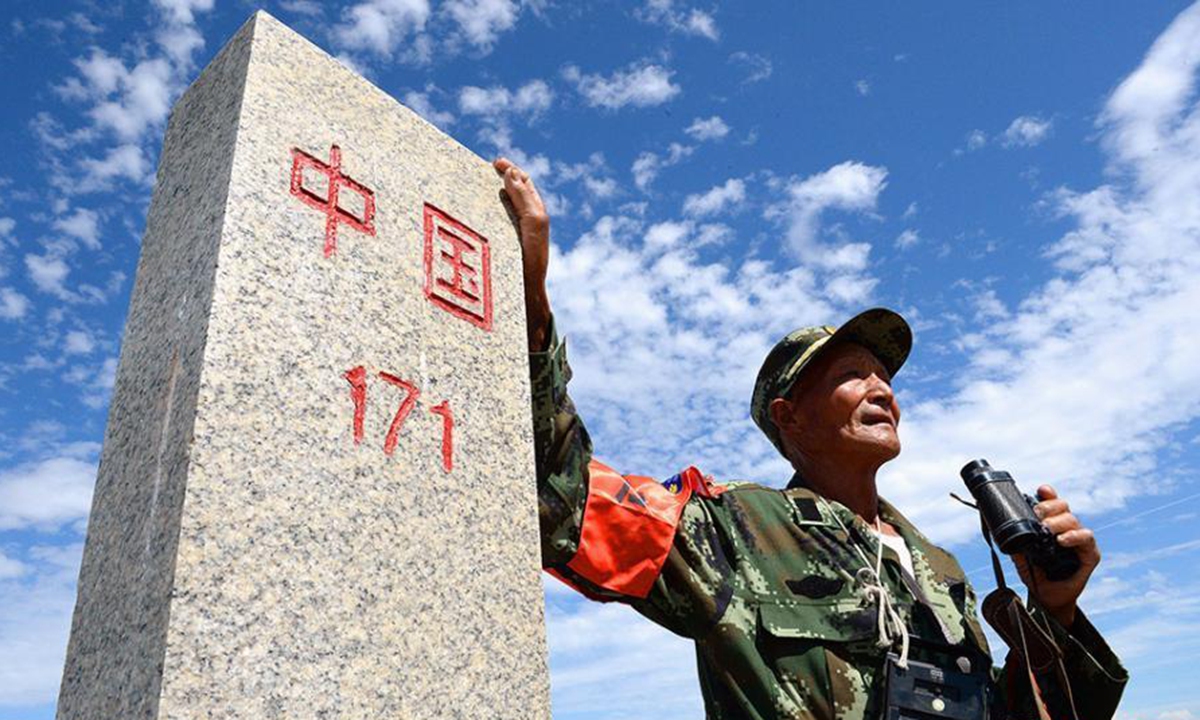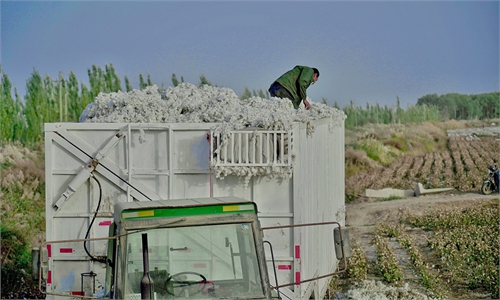
A picture of Wei Deyou. Photo: Web
Next to Wei Deyou and his wife Liu Jinghao's small cottage located in the remote region of Sa'er bulake, Qinggil county in Northwest China's Xinjiang Uygur Autonomous Region stands a big sign at the front door that says "border guard" in Chinese.
But Wei's role is more than that.
In his 57 years as a border guard, Wei has walked over 200,000 kilometers, which is calculated as to be equivalent to five times around the Earth's equator.
After heading west in 1964, Wei, with his 117 comrades-in-arms from Second Company, 12th Regiment of the Second Division, Xinjiang Production and Construction Corps, began to dedicate his life to guarding the country borders.
Later in 1969, they moved even further to Sa'er bulake, very close to China's border with Mongolia, where the nearest border checkpoint is six kilometers away from their home.
"After we got here, we patroled together, herded sheep and farmed," Wei told the outlet.
Upon their arrival, Wei and the rest of his company transformed the vast wasteland into a livable village by planting trees, vegetables and grape vines. Yet when it came to 1981, most of the families moved again to live closer to the city after the company was disbanded.
Yet Wei chose to stay with his wife Liu. He indicated that the death of a close friend played an important part in his decision.
Six months after their team arrived in Xinjiang, Chen Xiuchang, one of Wei's close friends from the same hometown in East China's Shandong Province died after being attacked by a pack of wild wolves.
Chen contracted rabies from the attack, which proved fatal despite the aid provided by his comrades. At Chen's death bed, Wei promised him that he would guard the region "as long as I can," Wei told the Xinhua News Agency in an interview.
Another reason Wei stayed behind is that he "simply believed the area must be guarded by someone."
"There are no border facilities on such a long borderline, and the border defense that is six kilometers away is also lacks manpower. Although herders come, they only graze here for around four months. "
In June, the July 1 Medals were conferred in Beijing to him as the Communist Party of China marked its 100th anniversary. The 81-year-old was among the 29 outstanding Party members who received the honor.
After the trip to the capital, the couple returned to the empty grassland in Sa'er bulake.
It has been no easy task for the couple to guard the border while sustaining themselves through herding and farming.
Wei told Xinhua that he has been the target of retaliation for preventing herders from cross-border grazing activities. There was one time when a herder came to Wei's home in the middle of the night and secretly chased his flock of sheep out into the mountains.
"The more these things happen, the more important it is for us to stay," Wei said.
Xinhua-Global Times



